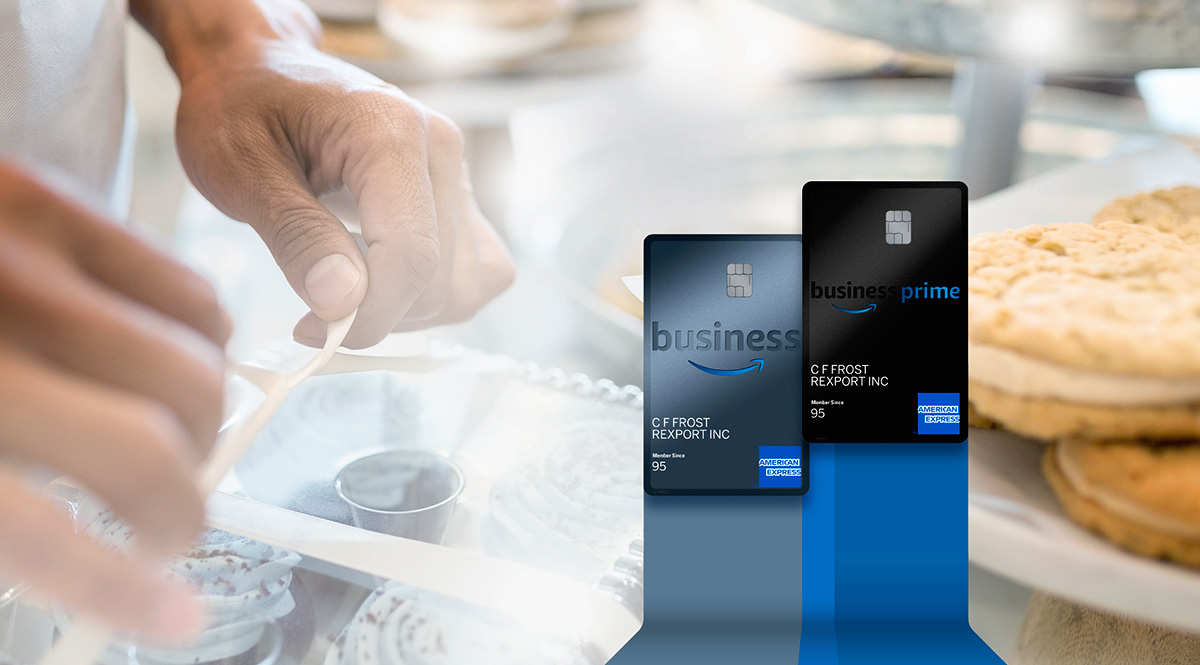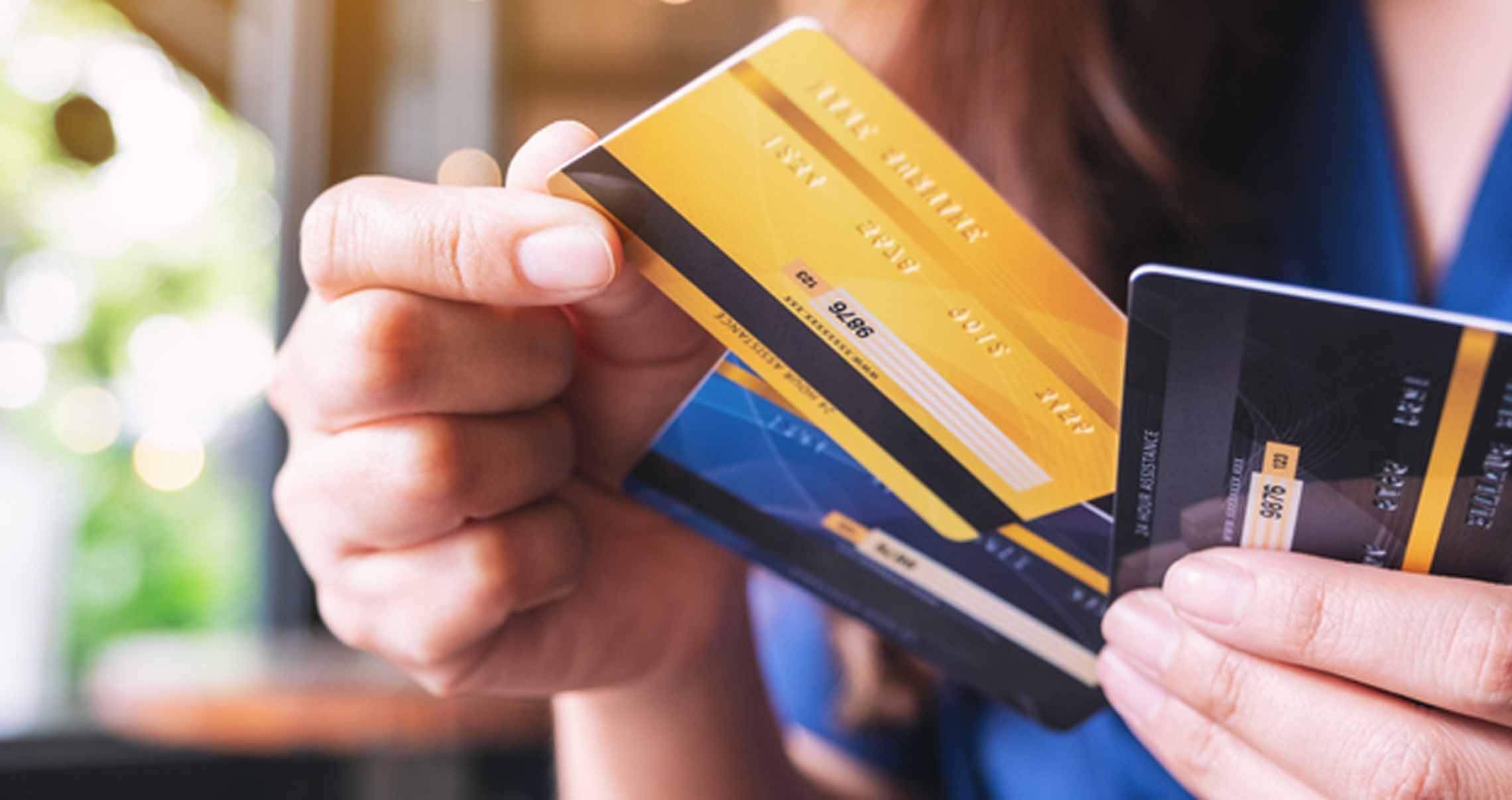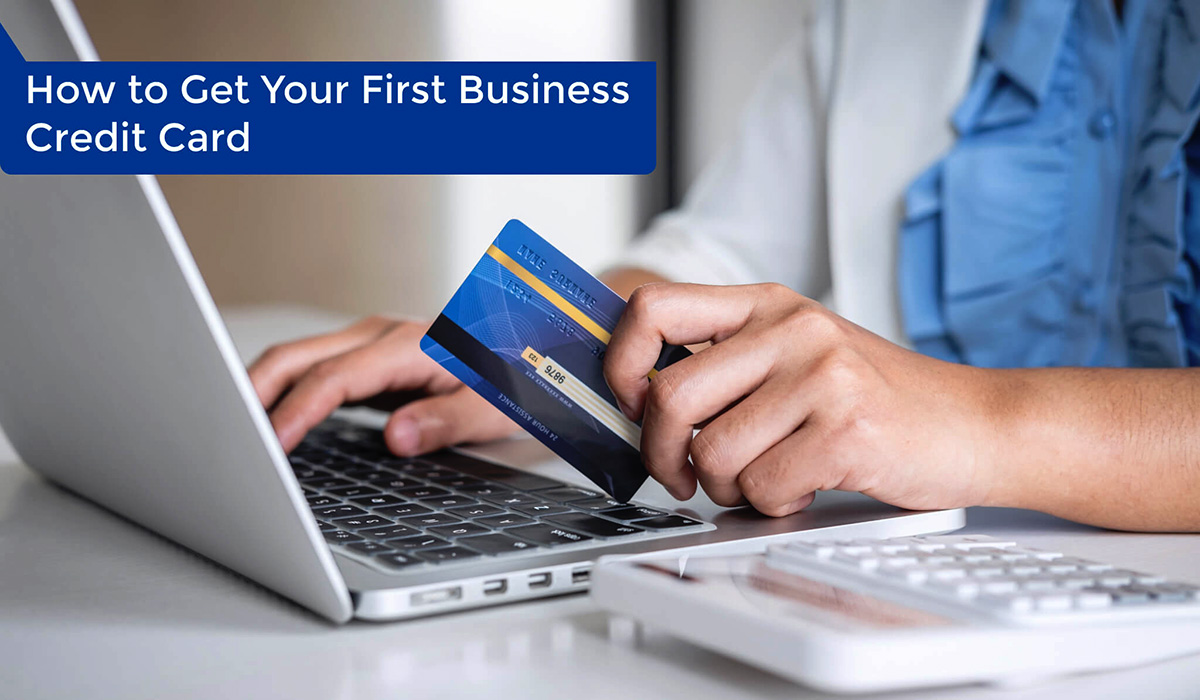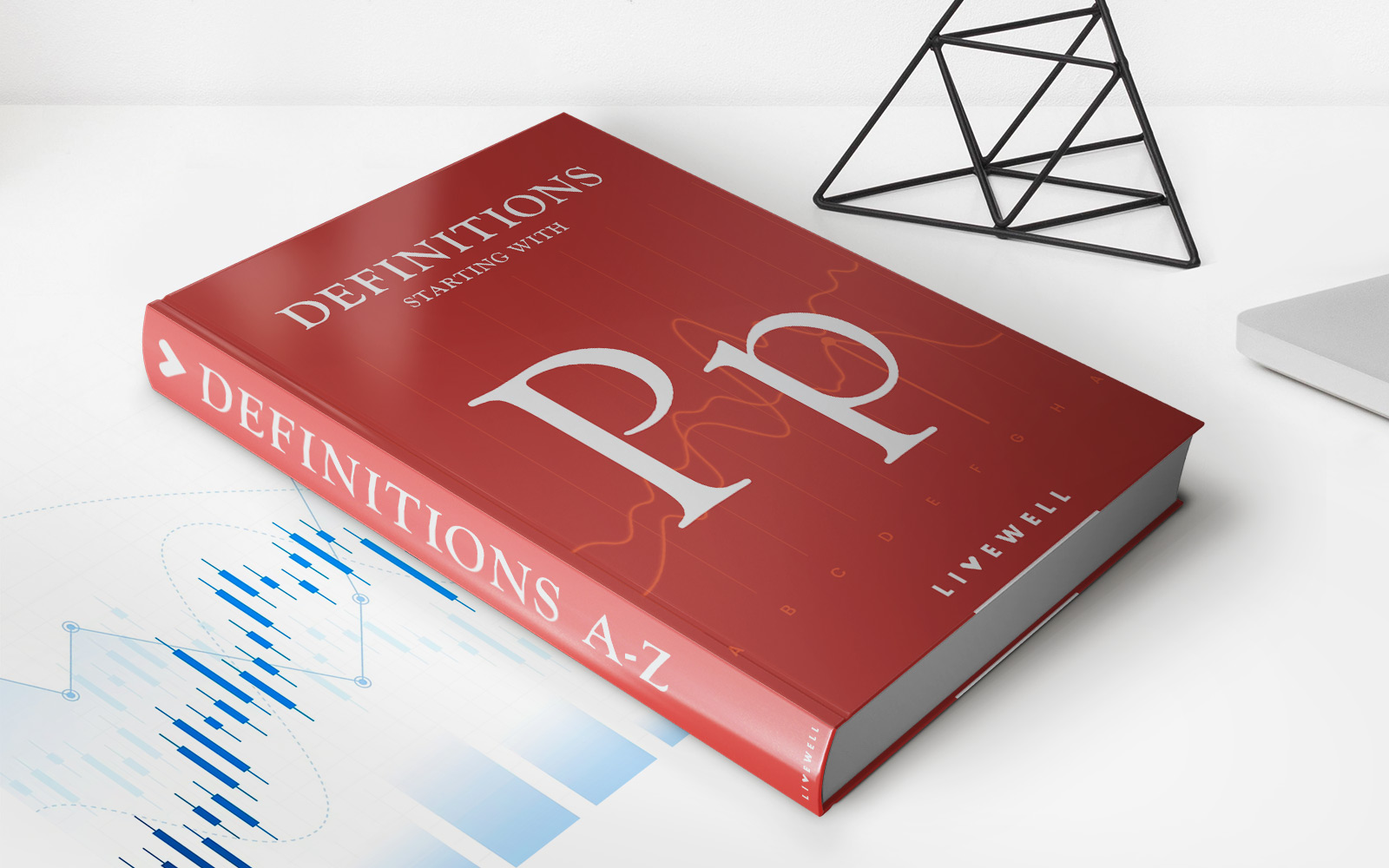Home>Finance>How To Get Business Credit Card Without A Business


Finance
How To Get Business Credit Card Without A Business
Published: November 6, 2023
Looking for a business credit card without having a business? Discover effective ways to get a business credit card even without a formal business setup, only at Finance.
(Many of the links in this article redirect to a specific reviewed product. Your purchase of these products through affiliate links helps to generate commission for LiveWell, at no extra cost. Learn more)
Table of Contents
- Introduction
- Understanding Business Credit Cards
- Benefits of Having a Business Credit Card
- Steps to Get a Business Credit Card without a Business
- Eligibility Criteria for a Business Credit Card
- Documents Required to Apply for a Business Credit Card without a Business
- Tips for a Successful Application
- Alternatives to Getting a Business Credit Card without a Business
- Conclusion
Introduction
Having a business credit card can offer significant advantages for both established businesses and startups. However, what if you don’t have a traditional business entity or are just starting out? Is it possible to get a business credit card without a business? The answer is yes! In this article, we will explore how you can obtain a business credit card even if you don’t have a formal business structure.
Business credit cards differ from personal credit cards in that they are specifically designed to cater to the needs of businesses. They offer perks and rewards tailored to business expenses, including higher credit limits, employee spending controls, and detailed expense tracking. However, not having a traditional business structure doesn’t mean you can’t enjoy these benefits.
Whether you’re a freelancer, a sole proprietor, or an individual looking to separate your personal and business expenses, obtaining a business credit card can be advantageous. It not only helps you build a credit history for your business but also offers the convenience and flexibility of managing your finances separately.
In the following sections, we will discuss the benefits of having a business credit card, the steps to apply for one without a business, the eligibility criteria, the necessary documents, and explore alternative options if you’re unable to qualify for a traditional business credit card.
So, without further ado, let’s delve into the details and find out how you can get a business credit card without having an established business.
Understanding Business Credit Cards
Before diving into the process of obtaining a business credit card without a business, it’s important to have a clear understanding of what exactly a business credit card is and how it differs from a personal credit card.
A business credit card is a financial tool designed specifically for businesses or self-employed individuals to cover their business-related expenses. It allows you to separate your personal and business expenses, making it easier to track and manage your finances. Just like personal credit cards, business credit cards come with various features and perks, including rewards programs, expense tracking tools, and potentially higher credit limits.
One of the key benefits of a business credit card is that it helps you build a credit history for your business. This can be crucial for securing future financing options, such as loans or lines of credit, as lenders often consider a business’s creditworthiness when making lending decisions.
Business credit cards also provide additional benefits tailored to the unique needs of businesses. These may include:
- Rewards Programs: Many business credit cards offer reward programs tailored to business spending categories, such as travel, office supplies, or advertising expenses. These rewards can include cash back, airline miles, or discounts on business-related purchases.
- Expense Tracking: Business credit cards often come with expense tracking tools that help you categorize and analyze your expenses. This can be useful for budgeting, tax reporting, and identifying areas where you can potentially cut costs.
- Employee Spending Controls: If you have employees who make business-related purchases, a business credit card can provide you with the ability to set spending limits and monitor their transactions. This helps ensure accountability and prevents unauthorized spending.
- Higher Credit Limits: Business credit cards generally come with higher credit limits compared to personal credit cards. This can give you greater purchasing power and flexibility to cover larger business expenses.
Understanding these key features and benefits of business credit cards is essential before moving forward with the process of obtaining one without a traditional business entity. Now that we have a clear understanding, let’s explore the steps to get a business credit card without a business.
Benefits of Having a Business Credit Card
Having a business credit card offers numerous advantages that can help streamline your business operations and finances. Let’s take a closer look at some of the key benefits:
- Separation of Personal and Business Expenses: One of the primary benefits of a business credit card is the ability to separate your personal and business expenses. This makes accounting and tax reporting much simpler and eliminates the need to sift through personal transactions to identify business-related expenses.
- Build and Improve Business Credit: A business credit card allows you to establish and build a credit history for your business. By using your card responsibly and making timely payments, you can demonstrate your creditworthiness to lenders, which can be beneficial when seeking business loans or financing in the future.
- Access to Higher Credit Limits: Business credit cards typically come with higher credit limits than personal credit cards. This can provide you with greater purchasing power and financial flexibility to cover large business expenses or unexpected costs.
- Expense Tracking and Reporting: Many business credit cards provide tools and software that allow you to track and categorize your business expenses. This simplifies expense management, aids in budgeting, and provides valuable insights into your spending patterns.
- Rewards and Perks: Business credit cards often come with rewards programs tailored to business spending categories. These rewards can include cash back, travel rewards, discounts on office supplies or travel expenses, and other perks that can help offset your business costs or provide additional value.
- Additional Features for Business Owners: Some business credit cards offer special features designed specifically for business owners, such as employee spending controls, detailed transaction reporting, and integration with accounting software.
- Business Insurance Coverage: Certain business credit cards also provide insurance coverage for travel, rental cars, and purchase protection, offering added peace of mind when managing your business expenses.
These benefits make having a business credit card a valuable tool for managing your business finances effectively. Whether you’re a freelancer, a startup, or an established business, a business credit card can help you streamline processes, build credit, and gain access to useful rewards and features.
Now that we understand the benefits of having a business credit card, let’s explore the steps to obtain one without a traditional business.
Steps to Get a Business Credit Card without a Business
Obtaining a business credit card without a formal business structure is possible, but it requires a strategic approach. Below are the steps to follow if you want to get a business credit card without a business:
- Choose the Right Card: Research and compare business credit cards offered by various financial institutions. Look for cards that cater to self-employed individuals or sole proprietors. Consider factors such as credit limits, rewards programs, annual fees, and interest rates to find the best fit for your needs.
- Establish Your Business Name: Even if you don’t have a formal business structure, you can still create a name for your “business.” This can be your own name or a catchy business name that represents your freelance or self-employed work.
- Apply for an EIN: An Employer Identification Number (EIN) is a unique tax identification number issued by the IRS. While it is typically associated with businesses, you can still obtain an EIN as a sole proprietor or self-employed individual. Applying for an EIN helps establish a more professional image and separates your personal and business finances.
- Create a Business Bank Account: Open a separate bank account specifically for your business expenses. This adds credibility and demonstrates a clear separation between personal and business finances, which can increase your chances of getting approved for a business credit card.
- Build Your Credit: Before applying for a business credit card, it’s important to build a positive credit history. Pay your bills on time, reduce outstanding debts, and monitor your credit score. A strong personal credit history can help support your application for a business credit card.
- Apply for the Business Credit Card: Once you’ve completed the previous steps, you’re ready to apply for a business credit card. Provide all the necessary details during the application process, including your business name (or personal name), EIN, and any other required information. Be prepared to explain your business structure and the purpose of the card.
- Track and Manage Your Expenses: After receiving your business credit card, be diligent about tracking and managing your expenses. Keep receipts, categorize your expenses, and take advantage of any expense tracking tools provided by the credit card issuer.
By following these steps, you can increase your chances of obtaining a business credit card without having a formal business structure. Remember to explore the requirements and eligibility criteria of each credit card issuer before applying, as they may have specific guidelines for self-employed individuals or sole proprietors.
Now that you know the steps, let’s understand the eligibility criteria and the documents you may need to apply for a business credit card without a business.
Eligibility Criteria for a Business Credit Card
While the eligibility criteria for a business credit card without a business may vary depending on the credit card issuer, there are some common requirements you should be aware of. Here are the general eligibility criteria for obtaining a business credit card:
- Minimum Age: Most credit card issuers require you to be at least 18 years old to apply for a business credit card.
- Valid Social Security Number (SSN) or Individual Taxpayer Identification Number (ITIN): You will typically need to provide your SSN or ITIN during the application process to verify your identity.
- Proof of Income: Even without a traditional business, you may need to demonstrate your income to qualify for a business credit card. This can include providing tax returns, bank statements, or other relevant financial documents.
- Good Personal Credit: Since you don’t have a separate business credit history, credit card issuers will primarily rely on your personal credit score and credit history to evaluate your creditworthiness. Most issuers prefer applicants with a good or excellent personal credit score, typically around 670 or higher.
- Business Name or Trade Name: While not mandatory, having a business name or trade name can add credibility and professionalism to your application. You can use your own name or create a unique business name for your self-employed or freelance work.
- Business Address: Some credit card issuers may require you to provide a business address, even if it’s your home address. This helps establish a business presence, even without a physical commercial location.
- Business Bank Account: Having a separate business bank account is not always mandatory, but it can increase your chances of approval. It demonstrates a clear separation between personal and business finances and adds credibility to your application.
It’s important to note that the eligibility criteria may vary between different credit card issuers. Therefore, it’s recommended to thoroughly research the requirements of each issuer, understand their specific guidelines for self-employed individuals or sole proprietors, and evaluate if you meet the necessary criteria before applying.
In the next section, we will discuss the documents you may need to provide when applying for a business credit card without a business.
Documents Required to Apply for a Business Credit Card without a Business
When applying for a business credit card without a formal business structure, you may need to provide specific documents to support your application. While the requirements may vary depending on the credit card issuer, here are some common documents you may need:
- Personal Identification: You will need to provide a valid form of identification, such as a driver’s license, passport, or state-issued ID, to verify your identity.
- Social Security Number (SSN) or Individual Taxpayer Identification Number (ITIN): Credit card issuers typically require your SSN or ITIN to verify your identity and for tax reporting purposes.
- Proof of Income: You may be asked to provide documents that demonstrate your income, even without a formal business. This can include recent tax returns, bank statements, pay stubs, or any other financial documents that showcase your earning capacity.
- Business Name or Trade Name: If you have chosen a business name or trade name, you may need to provide evidence of its registration, such as a DBA (Doing Business As) certificate or a business license.
- Business Address: Some credit card issuers may require a business address, even if it’s your home address. You may need to provide a utility bill or lease agreement to verify your business location.
- Business Bank Account: Though not always mandatory, having a separate business bank account can strengthen your application. You might be asked to provide bank statements or account details to demonstrate financial stability and a clear separation between personal and business finances.
- Business Plan or Summary: In some cases, you may be asked to submit a business plan or a brief summary outlining your business objectives, target market, and financial projections. This can help the credit card issuer assess your level of preparedness and professionalism.
It’s essential to review the specific requirements of each credit card issuer you’re considering and prepare the necessary documents accordingly. Providing complete and accurate documentation can increase your chances of approval and expedite the application process.
In the next section, we will provide some tips to increase your chances of a successful application for a business credit card without a business.
Tips for a Successful Application
Applying for a business credit card without a formal business can be a unique process, but following these tips can increase your chances of a successful application:
- Build and Maintain Good Personal Credit: Since your personal credit history will play a significant role in the application process, focus on maintaining a good credit score by paying your bills on time, keeping your credit utilization low, and managing your debts responsibly.
- Research and Compare Credit Card Issuers: Look for credit card issuers that specifically cater to self-employed individuals or sole proprietors. Compare their eligibility criteria, fees, interest rates, and rewards programs to find a card that aligns with your needs and financial goals.
- Prepare Detailed Financial Documentation: Gather all the necessary financial documents, such as tax returns, bank statements, and proof of income, to demonstrate your financial stability and capacity to manage credit responsibly.
- Establish a Professional Image: Create a business name or trade name, if possible, to add credibility to your application. Develop a professional website and business email address to showcase your commitment to your work.
- Maintain a Separate Business Bank Account: Open a business bank account to separate your personal and business finances. This helps establish a clear distinction between your personal and business expenses and demonstrates financial responsibility.
- Highlight Your Experience and Expertise: Emphasize your professional experience, skills, and expertise in your application. Showcase any relevant certifications, awards, or achievements to strengthen your credibility as a self-employed individual.
- Prepare a Business Summary or Plan: Consider creating a business summary or plan that outlines your objectives, target market, and financial projections. This demonstrates your preparedness and commitment to your self-employed endeavors.
- Submit a Strong Application: Take the time to carefully complete the application form, ensuring accuracy and consistency. Double-check all the information provided and include any additional documents that may enhance your application.
- Follow Up on Your Application: After submitting your application, follow up with the credit card issuer if you haven’t heard back within a reasonable time frame. This shows your proactive approach and interest in obtaining the business credit card.
- Monitor Your Credit: Throughout the application process, and even after receiving the credit card, monitor your credit regularly. Stay on top of any changes or updates to your credit report and address any discrepancies promptly.
By following these tips, you can present a strong application and increase your chances of obtaining a business credit card without a formal business structure.
In the next section, we will explore alternative options for obtaining financing or credit if you are unable to qualify for a traditional business credit card.
Alternatives to Getting a Business Credit Card without a Business
If you are unable to qualify for a traditional business credit card without a formal business structure, there are alternative options available to help you manage your finances and obtain the necessary funding. Here are a few alternatives worth considering:
- Secured Credit Cards: A secured credit card requires you to make a cash deposit as collateral, which becomes your credit limit. This type of card can help you build or rebuild your credit history and may be more accessible, even without a business.
- Personal Credit Cards: While personal credit cards may not offer the same business-specific benefits as a business credit card, they can still be used to manage your business expenses. Just be sure to keep personal and business expenses separate for easier tracking and accounting.
- Business Debit Cards: Explore the option of obtaining a business debit card associated with a business checking account. This allows you to make purchases using the funds available in your account without incurring debt.
- Personal Loans: If you need funding for your business, you can consider applying for a personal loan. The loan can be used for business purposes, and you will be personally responsible for repayment.
- Microloans or Crowdfunding: For smaller financing needs, microloans or crowdfunding platforms can be viable options. These sources can provide funding without requiring a formal business structure.
- Business Line of Credit: Some financial institutions offer business lines of credit that do not require a formal business entity. This type of financing provides flexibility in accessing funds as needed and can help you manage cash flow.
- Purchase Order Financing or Invoice Factoring: If your business involves selling products or services, consider exploring options such as purchase order financing or invoice factoring. These alternatives allow you to obtain funds based on your pending sales orders or outstanding invoices.
- Partnership or Joint Venture: Collaborating with someone who has an established business can provide opportunities for joint ventures or partnerships. This allows you to leverage their existing business structure to gain access to credit facilities or financial resources.
While these alternatives may not offer the same benefits as a dedicated business credit card, they can still provide you with the means to manage your finances and obtain funding for your self-employed or freelance endeavors. It’s important to research and assess each option carefully before committing to ensure it aligns with your needs and financial goals.
Now that you are aware of some alternatives, let’s wrap up the article.
Conclusion
Obtaining a business credit card without a formal business structure may seem challenging, but it is indeed possible. By following the steps outlined in this article, you can increase your chances of approval and enjoy the benefits of a business credit card, such as separating your personal and business expenses, building a credit history for your business, and accessing rewards and perks tailored to businesses.
Remember to research and compare credit card issuers that cater to self-employed individuals or sole proprietors. Prepare the necessary documentation, highlight your experience and expertise, and present a strong application to improve your approval odds. If you are unable to qualify for a traditional business credit card, consider exploring alternatives such as secured credit cards, personal credit cards, business debit cards, personal loans, or crowdfunding platforms.
Regardless of the path you choose, it’s important to maintain good personal credit, track and manage your expenses effectively, and monitor your credit regularly. These practices will not only help you succeed with a business credit card application but also contribute to the overall financial health of your self-employed or freelance venture.
Now that you have a better understanding of how to obtain a business credit card without a business, take the necessary steps to secure the financial tools that can help propel your business forward. Remember, with the right strategy, dedication, and financial management, you can successfully navigate the world of business credit cards, even without a formal business structure.














